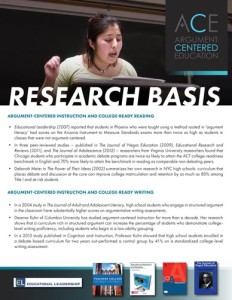While a lot of authoritative research – from the University of Chicago and other top research sites – supports the efficacy of infusing literacy instruction with evidence-based discussion and frequent writing, the research referenced below documents the impact that argument-centered instruction itself is having in several sites where it has been implemented intentionally.


